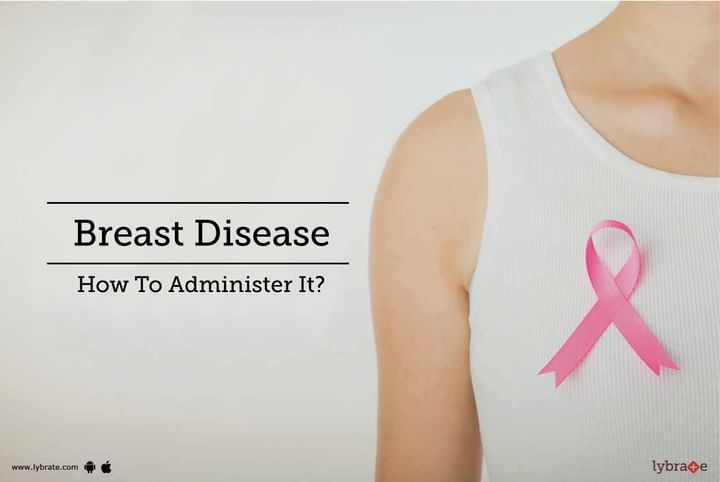Get the App
For Doctors
Login/Sign-up
Last Updated: Feb 04, 2020
BookMark
Report
Breast Disease - How To Administer It?
Breast pain, lumps in the breast or discharge from the nipples are some of the more common complaints seen in women. Also, it is generally observed that such women are between the ages of 40-69. While most of these cases are benign, the diagnosis or the problem should be deciphered only after a detailed analysis of the case, symptoms, and history of breast cancer if any.
- Breast Pain: Breast pain can arise from a condition called mastitis. It is generally seen in new mothers where the bacteria can enter the milk ducts through the cracks in the nipple causing an infection in the tissue. These infections can also be caused in menopausal women as well, it is more commonly seen in young mothers.
- Lumps in Breast: Breast tissue changes constantly during a woman’s lifetime and the changing hormone levels during a menstrual cycle can also cause such benign lumps. Benign lumps move as you press against them and can usually be seen in both breasts.
- Nipple Discharge: While most nipple discharges arise as a result of a benign condition, it will need to be investigated further to understand whether it due to an abscess, an injury, birth-control pills, pregnancy/childbirth or hormonal changes.
Screening:
- Breast Exams: The doctor will typically examine the patient’s armpits and breast in various angles for irregularities in shape, inward-turned nipples or lumps. The armpits are checked for enlarged lymph nodes as well.
- Mammography: This form of testing which involves x-rays of both the breasts is more effective in older women when the fat tissue is generally a lot more. In such cases, it is easier to identify other tissues from the fat tissue.
- Sonography: Where an abnormality is discovered in mammography, the sonography helps to clarify things further. A lump which is filled with liquid are rarely cancerous and this can be done through sonography.
Risk Factors:
Most women are still not aware about the factors that can put you at risk when it comes to breast cancer. Compiled below are some points that can help understand the same and what can be done to lower the risk:
- Age: While it is possible for any woman to get fibrocystic breast disease, women between 30 and 50 are more susceptible to such conditions thanks to the hormonal changes during this time.
- Family history: If anyone in your family has been diagnosed with breast cancer then automatically your risk increases. Also, if the person diagnosed is in the first relation then the risk factor doubles and in case there are two people in the first relation who have been diagnosed then the risk factor increases by 5 times. It is also sometimes linked to faulty genes such as BRCA1 and BRCA2.
- Exposure to radiation: In case you have undergone treatment and were exposed to any type of radiation near the chest area for any type of medical treatment then your risk of acquiring breast cancer increases. The younger you were at the time of radiation exposure higher is the risk.
- Obesity: Women who have a BMI over 25 are more at risk of developing breast cancer than others. Further, obesity also increases the risk of recurrent breast cancer.
- Pregnancy & breastfeeding: Women who conceive after 30 years of age are more at risk of acquiring breast cancer, as breast growth cells are immature and active before a full term pregnancy and mature only after it and regulate them. Further, not breastfeeding your baby for 1 complete year can increase your risk of cancer.
- Alcohol: Alcohol has the tendency to damage the DNA in cells and increase levels of estrogen and other hormones associated with hormone-receptor-positive breast cancer. Women who drink alcohol 3 drinks a week have 15% more risk of developing breast cancer, which further increases by 10% if you consume it regularly.
While most breast diseases are benign, it is best to check with your doctor about your condition and a possible treatment plan.
In case you have a concern or query you can always consult a specialist & get answers to your questions!



+1.svg)
